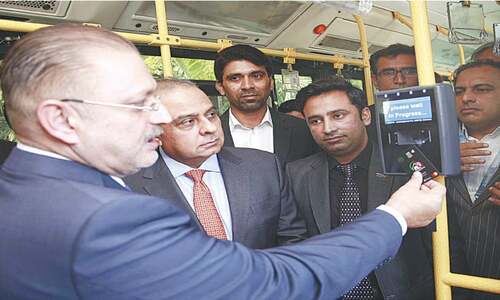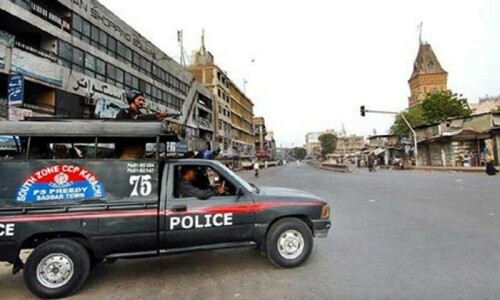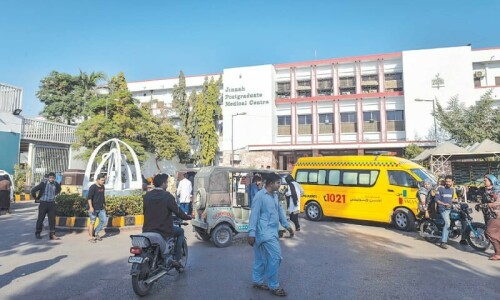KARACHI: To mark the 70th anniversary of the Royal Indian Navy mutiny that took place on Feb 18, 1946, the Perween Rahman Lecture Series organised a talk by researcher Aslam Khwaja, which delved into the role the city of Karachi played at the time of the mutiny.
Mr Khwaja’s interest has been in studying the freedom movement against the British Raj, and he shared his research on how the mutiny was fought from two different fronts — the first was from the naval front and the other was the civilian front. “Both fronts played an integral role in the mutiny and during clashes in Karachi 14 Indian naval officers and over a dozen civilians lost their lives,” he said.
According to historical records, Bombay (now Mumbai) and Karachi became twin cities as both were important ports for the Indian subcontinent, and faced the most impact of the mutiny; the other city that faced a similar backlash was Madras (now Chennai).
The Indian ratings in Karachi took over the ship Hindustan and the navy’s offshore installations on Manora Island. According to Khwaja, “Karachi was historically one of the main centres of the Royal Indian Navy mutiny as it was considered a major established centre so it was an essential component of the mutiny.”
Mr Khwaja also spoke about how the mutiny strengthened the cause of Independence of the Indian subcontinent from British rule despite the fact that the mutiny was short-lived. Another contributing factor was the resentment of the naval officers that all high-ranking officials in the navy were British and hardly any local was promoted.
“The civilian front of the rebellion was led by the Communist party of India,” said Mr Khwaja. “Some of the leaders who took an active part in the mutiny included Sobho Gianchandani and A.K. Hangal,” he added.
The main protest in Karachi was held at the Eidgah Maidan ground, where a call was made to mobilise workers from different factories and localities. A general strike was also called for the next day.
Mr Khwaja’s lament at the lecture was that not enough was being done to commemorate the lives of those who were part of the mutiny. “We should set up markings and monuments throughout the city that represented the Royal Indian Navy mutiny and pay tribute to the men who were part of this struggle,” he said.
He also stressed the need to establish a resource centre in Karachi that would compile and document all the previous struggles in the subcontinent, including the 1946 naval mutiny, for future generations to learn from.
Published in Dawn, March 31th, 2016











































